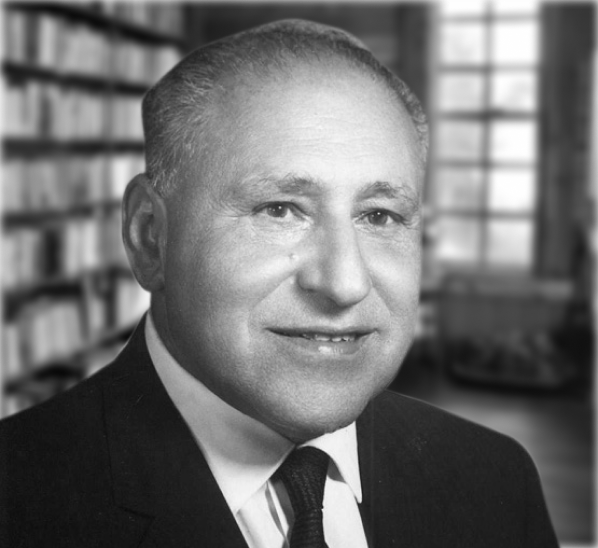- LAWRENCE and HORACE KADOORIE were the initiators and benefactors of an effective scheme of rehabilitation.
- The KADOORIE brothers consulted with Government and a venture in agricultural extension was decided upon for which they would provide financing and official agencies the technical knowledge and facilities.
- The RMAF Board of Trustees recognizes their practical philanthropy working in partnership with Government and struggling cultivators to promote rural welfare in the Colony of Hong Kong.
Seeking refuge in the Colony of Hong Kong following political change on the China mainland in 1949 were many farmers, farm laborers and older folk unable to compete in urban work. For them LAWRENCE and HORACE KADOORIE were the initiators and benefactors of an effective scheme of rehabilitation. These refugees were a special problem. They urgently needed capital or loan money to acquire land or stock which would enable them to make a living in the only way they knew, and the Colony needed more food.
The KADOORIE brothers consulted with Government and a venture in agricultural extension was decided upon for which they would provide financing and official agencies the technical knowledge and facilities. To this end, the Kadoorie Agricultural Aid Association was established in September 1951.
Since then, the KADOORIE brothers have contributed the equivalent of more than two million eight hundred thousand U.S. dollars to this experiment plus their own time and quiet encouragement. This provided the means for making productive some 75,000 rural families in the New Territories of the Colony of Hong Kong.
Assistance is distinctive in being practical, prompt and flexible, and in sufficient amounts to be effective. The Association began by giving new settlements of refugees enough stock to establish them as pig or chicken raisers and interest-free loans enabling them to erect their own simple sties and buy feed. Later loans permitted construction of small irrigation systems for growing vegetables. A second livestock plan was built around poor widows in the New Territories. Villagers have been helped to use modern agricultural aids. Cement and other construction materials were distributed for building access roads and other local public works. Almost every phase of farming in the Colony has benefited.
Jointly with Government, the brothers established, in August 1955, the Kadoorie Agricultural Aid (Loan) Fund, each party contributing an equal amount and Government later quadrupling its share. Interest-free loans are made for all productive farm purposes. With few exceptions borrowers have repaid on time and in full.
This cooperation has enabled government specialists to achieve an exceptional effectiveness in helping refugees and poor farmers in the Colony become self-supporting producers. The results are evident in a marked increase in food for the burgeoning population. Equally vital is the new sense of self-reliance among those rural families given the opportunity to stand on their own in the community.
In electing LAWRENCE and HORACE KADOORIE to receive the 1962 Ramon Magsaysay Award for Public Service, the Board of Trustees recognizes their practical philanthropy working in partnership with Government and struggling cultivators to promote rural welfare in the Colony of Hong Kong.
The high honor you have done my brother and myself in choosing us as awardees for the Ramon Magsaysay Award 1962 is very sincerely appreciated. It gives us the great satisfaction of knowing that the work it has been our privilege to do has achieved a significance beyond our borders. It strengthens our belief in the universality of human appreciation in dealing with problems involving the suffering of individuals and masses.
These problems are not confined to one country alone. They apply to suffering humanity everywhere and can only be put right by concerted action and goodwill transcending the bounds of nationality, race, or creed.
To some of us is given this understanding, and the duty and ability to help. A preeminent example was set by the late President Magsaysay — a man of action, a man of the highest integrity. It is fitting to quote the four main objectives of his “State of the Nation” message, delivered on the 28th January 1957:
(1) To safeguard the security of the nation.
(2) To promote the moral and material well-being of the masses.
(3) To develop and stabilize the national economy.
(4) To improve the standards of public service.
From his good deeds we are benefiting today, and in honoring his name we are being honored. Let us remember with humility that we but follow, and let us strive — as he did — to achieve a happier and better world. Like many of you present today, we have lived through troubled times, when the future appeared black and when we experienced trials and tribulations which beset our lives. To us this has given the knowledge that all men are of one community, which will live or perish through its weakest members.
All have a basic and fundamental need, which can only be satisfied by doing as we would wish to be done by. Self preservation demands that we should regard each other as partners and that, as with partners, each must strive for the betterment of the other, since only in this way can we survive.

